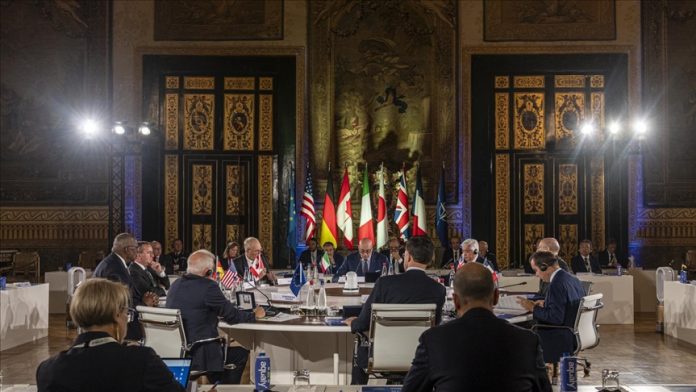The Group of Seven countries completed a $50 billion loan to Ukraine secured by frozen assets of the Russian Central Bank. The loans will be disbursed through a series of bilateral loans starting on 1 December and running until the end of 2027 in instalments, according to Bloomberg.
The completion opened a pathway for much-needed aid to flow to Ukraine and largely shielded critical funding from the outcome of the US presidential election to protect the loan funds from a possible return of US Republican presidential candidate Donald Trump to the Oval Office after the November election, who has pledged to bring the Ukraine-Russia conflict to an end.
The G-7 leaders said in a joint-statement:
Today, we, the leaders of the Group of Seven have reached a consensus on how to deliver approximately $50 billion in Extraordinary Revenue Acceleration (ERA) loans to Ukraine. The loan proceeds will be disbursed through multiple channels to support Ukraine’s budgetary, military and reconstruction assistance.
The US will contribute $20 billion to the total $50 billion loan, the European Union is expected to contribute about the same amount, and Britain has said it will contribute about $3 billion. Canada and Japan are also expected to contribute. The loan will be repaid with profits from about $280 billion of blocked funds, most of which are held at Belgium’s central securities depository Euroclear.
Initial attempts by the US to fully withdraw the frozen funds faced serious resistance, but negotiations to use the assets to benefit Ukraine have since gained momentum.
The process of creating the loan has stalled in recent months due to various technical details and legal hurdles. The US has struggled to find a way to contribute to the loan without asking Congress for more money. In addition, intense efforts to convince its allies, especially in Europe, to take advantage of the economic value of these assets.
However, a sticking point in the negotiations for the EU has been Hungary’s blocking of changes made by Washington for the EU to increase the review period for sanctions against Russia from once every six months to once every 36 months. Two-thirds of Russia’s assets are held in EU countries, and any change in sanctions could unlock Russian assets that serve as the basis for the loan.
